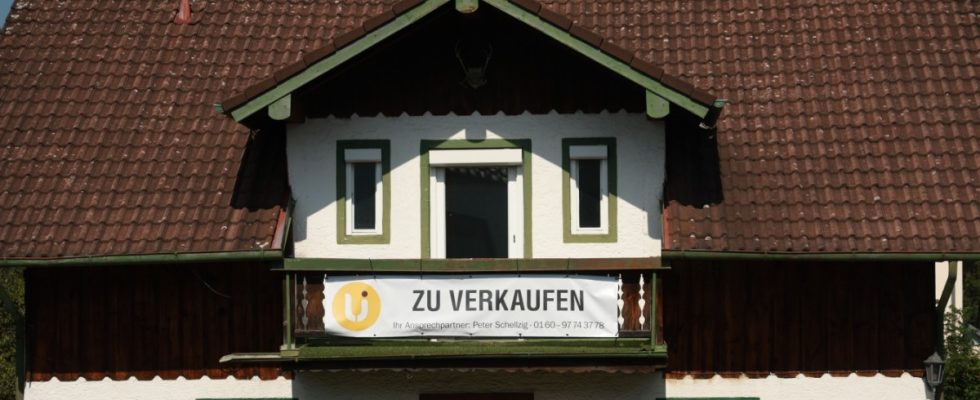Prices for residential property in Germany are falling at a record pace due to weak succession as a result of high building interest rates. From July to September they fell by an average of 10.2 percent compared to the same period last year, as the Federal Statistical Office announced. This is the largest decline since the time series began in 2000. The largest declines to date had occurred in the first (-6.8 percent) and second quarters of 2023 (-9.6 percent).
The main reason for this is likely to be lower demand as a result of increased financing costs and high inflation. From the second to the third quarter alone, prices fell by 1.4 percent: since the peak in spring 2022, they have been steadily declining. Prices fell in both cities and rural regions in the summer. In the top 7 metropolises, i.e. Berlin, Hamburg, Munich, Cologne, Frankfurt/Main, Stuttgart and Düsseldorf, prices for single- and two-family houses fell by 12.7 percent compared to the same quarter of the previous year. 9.1 percent less had to be paid for condominiums. In sparsely populated rural districts, single- and two-family houses were 12.4 percent cheaper, and apartments were 5.6 percent cheaper.
“Until 2022, there was a speculative price bubble in Germany, one of the largest in the last 50 years,” said Konstantin Kholodilin from the Macroeconomics Department of the German Institute for Economic Research (DIW). “Prices have been falling since then. The bubble has burst.” According to a study by DZ Bank, the downward trend is likely to continue in 2024 despite the expected change in interest rates: “We expect an annual average decline of half a percent to two and a half percent,” said analyst Thorsten Lange. Due to falling inflation, many economists expect that the European Central Bank (ECB) will initiate a monetary policy change next year and lower its interest rates. This should also make mortgage loans cheaper again and purchases more affordable for many interested parties.
Purchase prices are falling, but rents continue to rise
The key interest rate is currently 4.5 percent. Another point in favor of a gradual stabilization of prices is that too little is being built and the supply therefore remains limited. Federal Construction Minister Klara Geywitz (SPD) expects up to 265,000 new apartments for 2024, citing DIW data. That would be 5,000 fewer than in 2023. The federal government had actually set itself the target of 400,000 annually.
Recently there was a small ray of hope: in October, housing construction orders rose by more than 5.4 percent compared to the previous month. “We are no longer seeing double-digit negative rates, but we are still a long way from bottoming out,” said the general manager of the construction industry, Tim-Oliver Müller. He sees politics as having its turn. “If countermeasures are not taken immediately, the negative consequences for housing construction, companies and millions of tenants cannot be remedied.” In contrast to the purchase prices, according to the DIW study, rents continue to rise: they will rise by an average of three percent in the coming year, due to the high population growth as a result of immigration and the slow pace of housing construction. “In addition, many households have said goodbye to the dream of owning their own home because the previous price declines do not compensate for the increased financing costs,” says DIW researcher Malte Rieth. “Many are forced to continue renting, which further increases the demand for rental apartments.”

